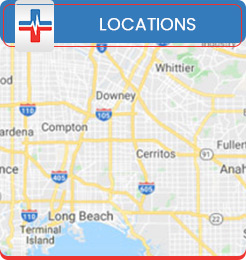Tetanus Vaccine Questions and Answer
Tetanus vaccination is available. Talk to our team of healthcare professionals today at Reddy Urgent Care. For more information, call us now. We have convenient locations in Downtown Long Beach CA, Bixby Knolls Long Beach CA, and Paramount CA. We are open 7 days a week.


Table of Contents:
What causes tetanus?
What Is the Tetanus Vaccine?
What does a tetanus shot prevent?
ATetanus is an infection that is caused by a bacterial toxin. The toxin affects your nervous system and can lead to painful muscle contractions, especially in the neck and jaw muscles, commonly referred to as lockjaw. Tetanus can be life-threatening as it can impact your ability to breathe. Tetanus bacteria spores are present everywhere in the environment including in dust, soil and manure. Once they enter the body, the spores will develop into the bacteria. Spores enter the body through broken skin, usually as the result of an injury from a contaminated object such as a nail or needle. Some wounds are more prone to tetanus bacteria spore infections such as contaminated wounds whether contaminated by dirt, feces or saliva, puncture wounds where an object punctured the skin, burns, crush injuries and injuries with dead tissue. However, tetanus bacteria are also able to infect the body through other breaks in the skin including clean superficial wounds, surgical procedures, insect bites, dental infections, compound fractures, chronic sores and infections, IV drug use and intramuscular injections. Thanks to the widespread availability of vaccines, tetanus cases are rare in the United States and other developed countries. However, it is still a threat due to it being present in the environment, particularly for people who are not up to date with their tetanus vaccine. There is no cure for tetanus, however complications can be managed through medications until the effects of the bacteria resolve themselves.
The tetanus vaccine is an injectable immunization provided to individuals in developed countries, including the United States, at regular intervals to build up immunity. The tetanus vaccine is part of the DTaP vaccine, which provides protection against tetanus, diphtheria and whooping cough. It is a series of 5 shots, given to children starting at 2 months of age. From there, they get a second shot at 4 months, the third at 6 months, the fourth sometime between 15 and 18 months and the final one between 4 and 6 years of age. After that point, a combined tetanus, diphtheria and pertussis, or whooping cough, vaccine booster is available and recommended to be given around the age of 11 or 12. From there, it is recommended to receive a tetanus and diphtheria combined booster ever years. It is a good idea to check with your doctor on a regular basis on the validity of your vaccinations and ensure they are kept up to date. If you do come into contact with a potential tetanus contaminated object, your doctor or the doctor treating you may recommend getting a tetanus shot as an extra level of protection if you don’t know when your last vaccination was. You may also want to check on how up to date your tetanus vaccination is if you are planning travel to a developing country where tetanus may be more prominent. Your doctor can help you determine what vaccines may be outdated or coming up due to recommend any immunizations you may need prior to traveling.
A tetanus shot is a combined vaccination with diphtheria and pertussis, or whooping cough, called a DTaP and Tdap. The DTaP vaccine is administered through a series of 5 shots given to children from 2 months of age through to 6 years, whereas the Tdap is a booster shot given around the age of 11 or 12. Getting a tetanus shot will not only protect you from contracting tetanus, but also from contracting diphtheria and whooping cough, all of which are very serious illnesses. These vaccines do not provide lifetime protection from illnesses, and everyone needs booster shots every ten years to maintain an adequate level of protection. Tetanus can be very dangerous as it causes painful muscle stiffness, breathing problems, muscle spasms and paralysis. In the case of a child, the muscle spasms can be strong enough to break their spine or other bones. Tetanus is often referred to as lockjaw as it can cause a person’s neck and jaw muscles to lock, so they can’t open their mouth or swallow. If you have any more questions, call us now.
We serve patients from Downtown Long Beach CA, Bixby Knolls Long Beach CA, Paramount CA, East Side CA, and Los Altos CA.
Check Out Our 5 Star Reviews






